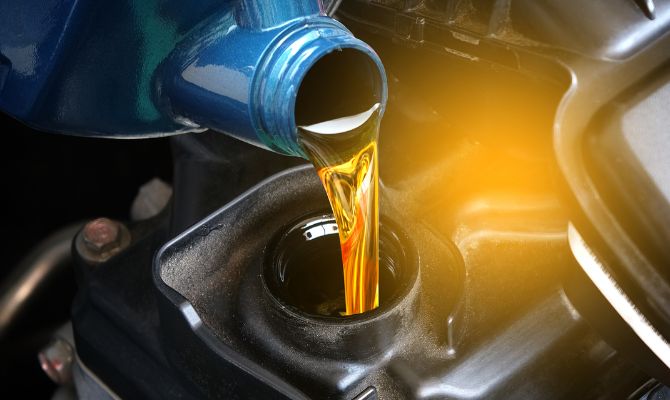
Diesel and gas engines are very different, as diesel engines are much more durable and fuel efficient than gas engines. However, both engines need engine oil to lubricate the moving parts and keep their health in check. These facts give rise to some common questions. What are the differences between diesel and gas engine oil? Can one be used instead of the other?
Understand motor oils and their purpose
Your vehicle’s engine has many moving parts made of metal that experience a lot of heat, pressure, friction and other stressors that can affect your health. Motor oils are a type of lubricant with a mineral oil or synthetic base that prevents moving engine parts from grinding as they flow throughout the machine. In addition to this oil base, there are chemical additives that help disperse heat and protect the engine from dirt build-up and corrosion. They help extend the life of your engine. Without lubricants, engine parts would grind and break down, resulting in a vehicle that can’t start, let alone run.
Diesel engine oil vs. gas?
The main differences between diesel and gas engine oils are viscosity and the level of chemical additives in their formulation. In simple terms, viscosity refers to how thick or thin a liquid is and how well it flows due to environmental forces, such as gravity. Why is this important? Many problems can occur if diesel engine oil is too thick or too thin. The same goes for gas engine oil. The main problem is that the oil cannot flow and protect the engine. In particular, diesel engines face more mechanical stressors and need higher performance. Therefore, there is also a higher level of performance additives in diesel engine oil.
Can one oil be used instead of the other?
The answer to this question is not as easy as a simple yes or no, as it really depends on your vehicle’s OEM specifications. Whether you have a gas or diesel engine, your engine oil must meet the specific viscosity and additive requirements recommended by the manufacturer. To answer that question, you can use diesel engine oil in a gas engine and vice versa, as long as the performance levels meet your engine’s needs. However, if your engine oil does not meet these requirements, at best you will need to change your engine oil more frequently. At worst, your engine may stop working.
If you’re not sure if your engine oil specifications meet OEM performance requirements, you can always check your vehicle’s manual or talk to your local mechanic.


